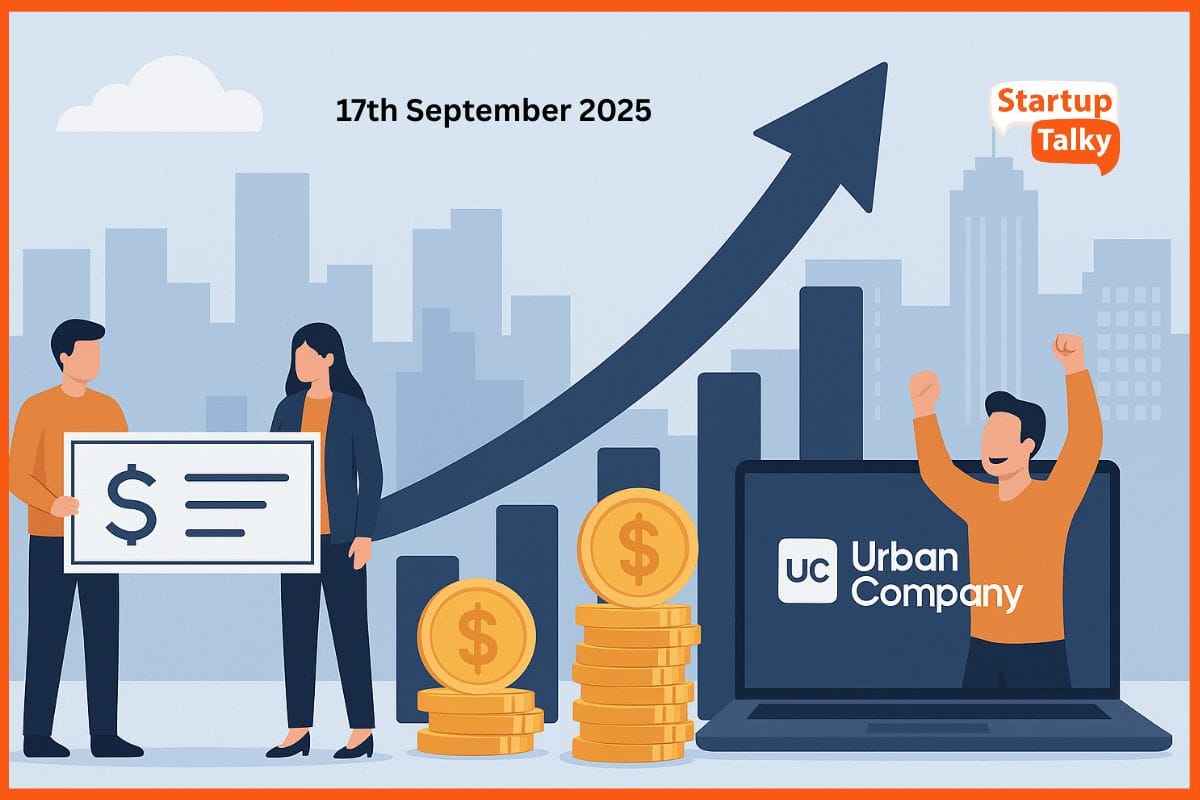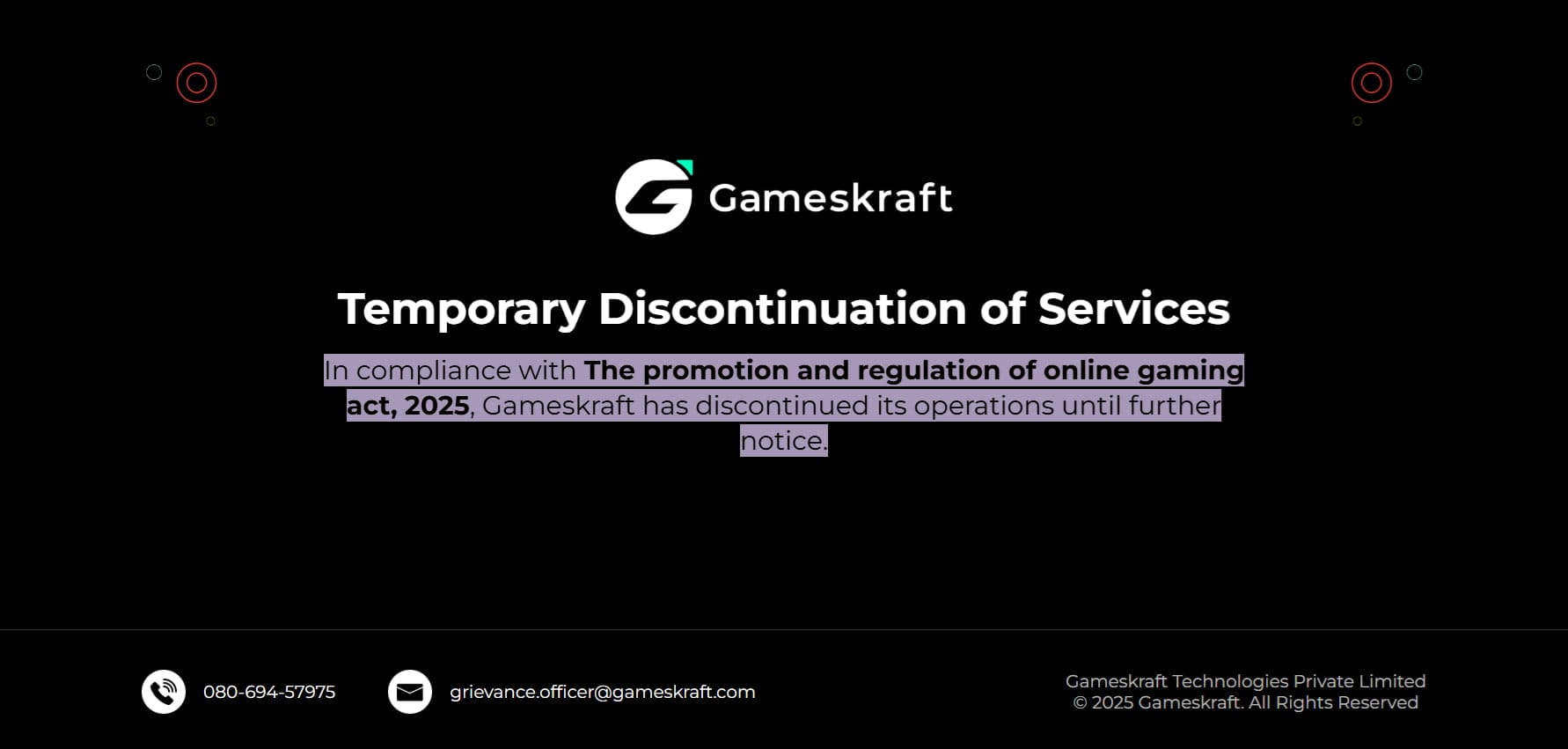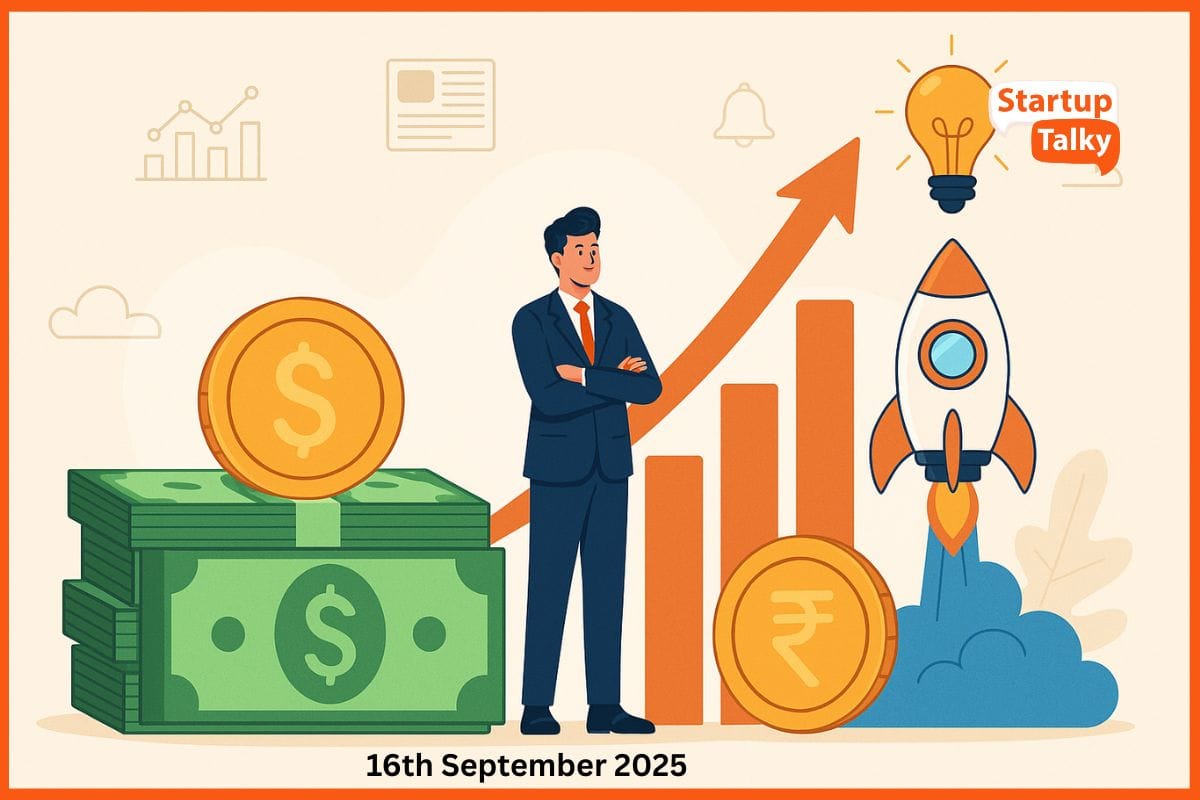India’s startup and business ecosystem on 18th September 2025 saw a mix of significant funding rounds and key developments. From Wow! Momo’s $8.5 million Series D raise and Infra.Market’s INR 731.5 crore flat-valuation round to Groq’s massive $750 million funding, the day highlighted strong investor interest across F&B, construction tech, venture debt, mobility, and AI hardware. Alongside funding, major corporate news included Gameskraft’s layoffs amid regulatory troubles, Meta’s unveiling of new wearable tech, and the Indian Navy’s INR 66 crore deal with Coratia Technologies for indigenous underwater robotics.
Daily Indian Funding Roundup – 18th September 2025
| Company | Amount | Round | Lead investor(s) | Sector |
|---|---|---|---|---|
| Wow! Momo | $8.5 Mn | Series D | 360 ONE; Kyrush Investments | Quick-service restaurant / F&B tech-enabled chain |
| Infra.Market | INR 731.5 Cr | Series G | Silverline Homes (founders); Tiger Global; NK Squared; Accel India; Nexus Ventures; Evolvence India | Building materials / Construction / Full-stack supply platform |
| Trifecta Capital (Fund IV) | $25 Mn | Venture debt fund investment | International Finance Corporation (IFC) | Venture debt fund focused on EVs, fintech, climate tech, AI infra, etc. |
| Blue Energy Motors | $30 Mn | Fresh funding round | Nikhil Kamath; Omnitex Industries | Heavy-duty electric & LNG trucks / Clean mobility & manufacturing |
Wow! Momo raises $8.5 million in Series D led by 360 ONE
Quick-service restaurant chain Wow! Momo is raising $8.5 million in its ongoing Series D round, led by 360 ONE with participation from Kyrush Investments. The funds will be used for capital expansion, working capital, and scaling its outlet network, FMCG business, and HORECA operations.
Infra.Market secures INR 731.5 crore in Series G at flat valuation
Building materials platform Infra.Market has raised INR 731.5 crore in a Series G round led by Silverline Homes (founders), with investments from Tiger Global, NK Squared, Accel India, Nexus, Evolvence, etc. The round is at a flat valuation (same as previous round). Funds will support its supply of structural and finishing construction products.
IFC to invest $25 million in Trifecta Capital’s Fund IV
The International Finance Corporation is set to invest $25 million in Trifecta Capital’s fourth venture debt fund. The fund offers debt financing for Series A and beyond, targeting EVs, financial services, climate tech, AI infrastructure, and expanding into consumer, education, and healthcare.
Blue Energy Motors raises $30 million from Nikhil Kamath & others
Heavy-duty truck manufacturer Blue Energy Motors raised US$30 million from Nikhil Kamath and Omnitex Industries. The capital will be used to expand manufacturing capacity and accelerate production of LNG and electric heavy-duty trucks.
Key Business News for 18th September 2025
Gameskraft lays off 120 employees amid ban and fraud probe
Gaming startup Gameskraft has laid off around 120 employees following the Karnataka government’s ban on online betting and the Central Forensic Process’s investigation into a fraud scandal. The layoffs affect staff across departments as the company faces legal and regulatory challenges, aiming to streamline operations during ongoing scrutiny.
Meta unveils Ray-Ban smart glasses and Neural Band
Meta has launched the latest version of its Ray-Ban smart glasses along with a new wearable called the Neural Band. The smart glasses are designed to integrate AI-driven features such as live streaming and real-time information access, while the Neural Band aims to enable hands-free device control through neural signals, reflecting Meta’s push into next-gen wearable tech.
Indian Navy signs INR 66 crore deal with Coratia Technologies
The Indian Navy has signed a INR 66 crore contract with Odisha-based Coratia Technologies to deploy indigenous underwater robotics. The partnership will strengthen naval capabilities with advanced robotic systems for underwater surveillance, reconnaissance, and operational support, marking a step toward Atmanirbhar Bharat in defense technology.




